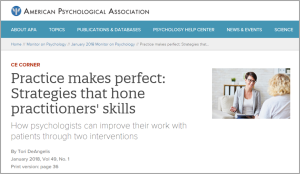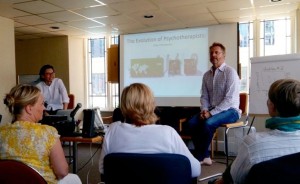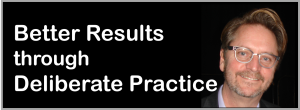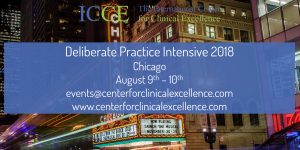The legendary cellist Pablo Casals was once interviewed by comedian George Carlin. When asked why, at age 93, he continued to practice three hours a day, Casals replied, “I’m beginning to show some improvement!”
Hard not to feel inspired and humbled by such dedication, eh? And while humorous, Casals was not joking. Across a wide variety of domains (e.g., sports, computer programming, teaching), deliberate practice leads to better results. Indeed, our recent study of mental health practitioners documented a growth in effectiveness consistent with performance improvements obtained by elite atheletes.
 The January issue of the APA monitor includes a detailed article on the subject. Staff writer Tori DeAngelis lays out the process of applying deliberate practice strategies to clinical work in clear, step-by-step terms. Best of all, it’s free–even continuing education credits are available if you need them.
The January issue of the APA monitor includes a detailed article on the subject. Staff writer Tori DeAngelis lays out the process of applying deliberate practice strategies to clinical work in clear, step-by-step terms. Best of all, it’s free–even continuing education credits are available if you need them.
 As mentioned in the article, each summer the International Center for Clincal Excellence sponsors a two-day, intensive training on deliberate practice for therapists. Daryl Chow, Ph.D. and I will be teaching together, presenting the latest scientific and practical information from our forthcoming book, Better Results: Using Deliberate Practice to Improve Therapeutic Effectiveness (APA, 2019).
As mentioned in the article, each summer the International Center for Clincal Excellence sponsors a two-day, intensive training on deliberate practice for therapists. Daryl Chow, Ph.D. and I will be teaching together, presenting the latest scientific and practical information from our forthcoming book, Better Results: Using Deliberate Practice to Improve Therapeutic Effectiveness (APA, 2019).
As in prior years, we promise you will be participating in an intimate, cutting-edge, and highly-personalized learning experience. Many practitioners return to year after year. “I’ve attended the Deliberate Practice Intensive for three years in a row,” says therapist Jim Reynolds, “because there is such a warm camraderie. We are all trying to do the best we can with our clients, but we go beyond that. To do that, I need contact with others who are striving to do better.”
Until next time,
Scott
Scott D. Miller, Ph.D.



Leave a Reply